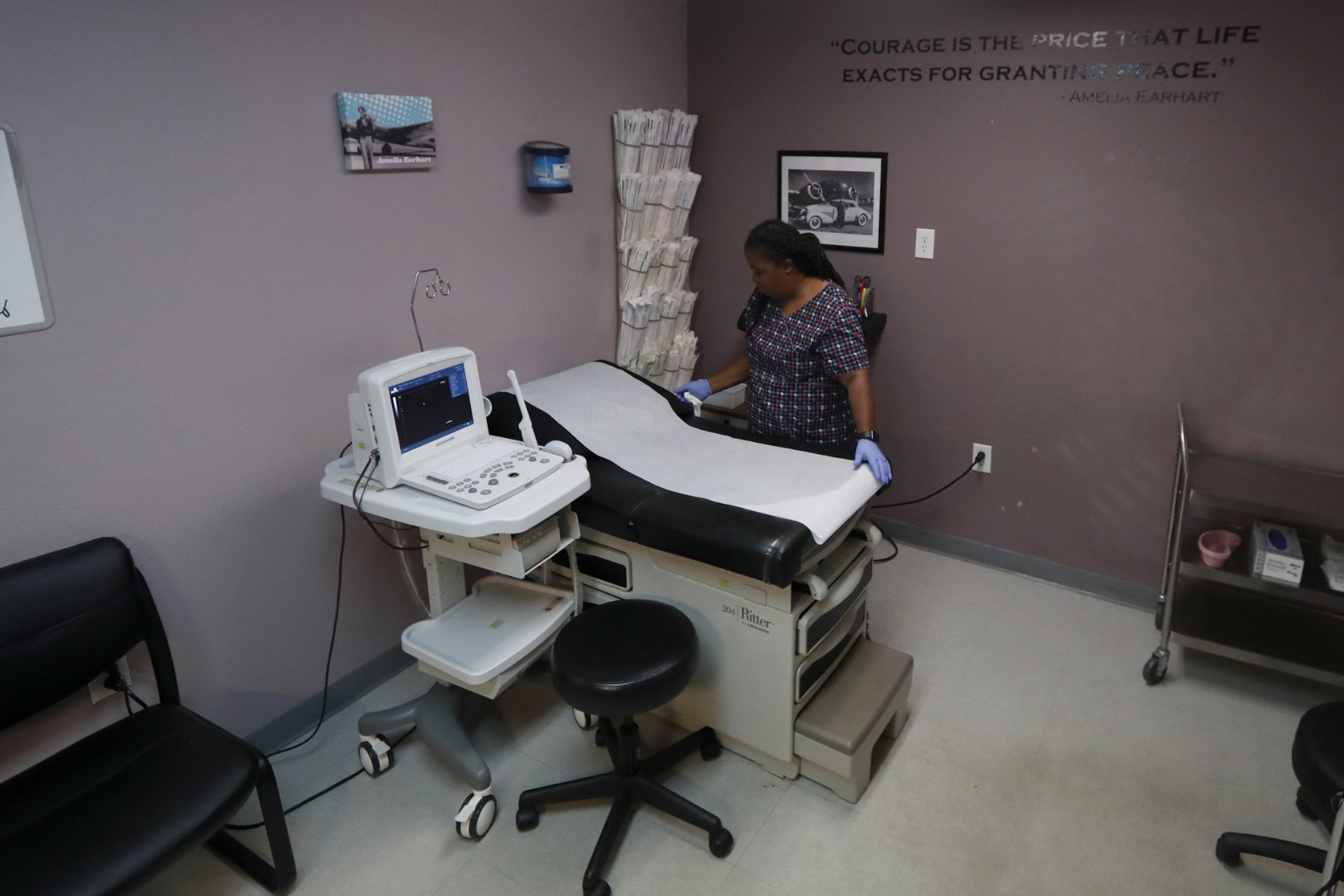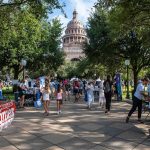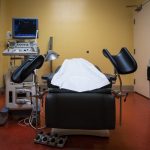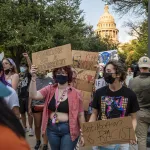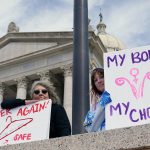It was 8 p.m. on Tuesday when Marva Sadler looked at the patients waiting in the lobby, at the list of patients waiting to return, at even more patients waiting outside in cars surrounded by protesters — and realized they might not get to everyone. In four hours, a near-total ban on abortions in Texas was set to take effect, and two dozen people were still waiting for the procedure at Whole Woman’s Health in Fort Worth, one of the largest abortion care clinics in the state.
Sadler, the director of clinical services, and her colleagues did the math. They needed to perform eight abortions an hour with only one doctor on duty, an octogenarian who had been working since 7 a.m. It felt impossible.
Outside, chants came in through a bullhorn, protesters shouting prayer verses and arguing the clinic was too full. Already the police had been called. The fire marshal would come twice over capacity issues inside the clinic. Employees could see protesters through their security cameras and through windows of the small brick building.
They are watching us, Sadler thought, and they’re winning.
Inside, she looked at her team: eight people total between the techs and the front office staff, the doctor and three staff members from a nearby clinic they brought in to help. She asked them to take a breath.
“We are not the bad guys here,” she told them. “We are doing everything right and we’re going to help everybody that we can. If there’s someone that we can’t help, it’s not our fault.”
At midnight Wednesday, Texas’ Senate Bill 8 became law, effectively banning abortions after six weeks of gestation — a time when most people aren’t even aware they are pregnant. Republican state lawmakers had fought to claw back abortion access before: In 2013, an anti-abortion bill banned the procedure in Texas 20 weeks post-fertilization and put a series of new regulations on abortion providers. Parts of the law were ultimately overturned in 2016 by the United States Supreme Court. It was Whole Woman’s Health, an abortion provider with clinics in five states, that sued to take that case to court. Sadler had been at the center of that fight, too.
SB 8 has also been appealed to the Supreme Court, with Whole Woman’s Health as the lead plaintiff in that case. But by Tuesday evening, with a full roster of patients to serve at the clinic in Fort Worth, it became clear that the high court would not step in before the law took effect.
The staff worked without stopping to eat, shifting patients in and out of rooms. In the lobby, people who had been waiting five hours or more asked when they would be called. They had to pick up other kids. Their ride was leaving. Their family members, who were outside because of coronavirus regulations, knocked on the front door to see what was happening. Would they be seen or turned away?
-
More from The 19th
- The 19th Explains: What to know about Texas’ abortion law
- Texas patients may have to travel hundreds of miles for abortion access, out-of-state clinics brace for surge
- As abortion ban goes into effect, Texas poised to double down with separate restrictions on abortion-inducing medications
One young woman arrived at her first appointment to the clinic that same night. She was a drug user, she told Sadler, and set to begin serving a five-year prison sentence in a week. She already had three children at home. She didn’t want to deliver a baby in jail.
She dropped to her knees on the cold tile floor in front of Sadler, begging her to take her, to perform the abortion.
In Texas, patients have to wait 24 hours after their first appointment to get an abortion. The woman was 12 weeks pregnant, and on Wednesday, she’d be too far along to get the procedure.
It was that woman Sadler thought about later, as she drove away from the clinic, the adrenaline of the day washed away by waves of sadness and pain. The knowledge that, no matter what she did, she couldn’t help everyone.
Just before SB 8 took effect, at 11:56 p.m., the doctor walked out of his last procedure. Clinic workers got to everyone they were legally allowed to treat. In 17 hours, they’d performed 67 abortion procedures. They’d seen 60 people who had taken medication to abort at home to confirm that — yes, the process was complete, and they wouldn’t be left in limbo.
For a moment they were able to savor it. Sadler looked at the doctor and told him physicians half his age wouldn’t have been able to do what he did. Even if he only had performed one abortion, it would have been a victory, she said.
When they walked out of the clinic for the night, the protesters were still there, standing in the dark on the sidewalk, watching them. As part of the Texas law, private citizens can sue anyone they believe may have “aided or abetted” someone getting an abortion outside of the six-week window — and potentially win $10,000 or more in damages.
Protesters were still there Wednesday before Sadler arrived at 7 a.m.
Her staff was visibly drained from the day before, shuffling through the hallways and talking in low voices. There were 77 people on their roster for the day — some of them real, some of them, Sadler suspects, protesters who called to make fake appointments to see if they could gain intel on what the clinic was telling its patients.
Sadler knew she would have to go out and say something uplifting to her team, even as she knew this would be a day where she would have to deny people care.
“How unfair,” she kept thinking, “that those women yesterday were helped, and the women today don’t have any help.”
It was only 10 a.m., but she had already turned away four people — some as early in their pregnancies as five weeks and six days.
